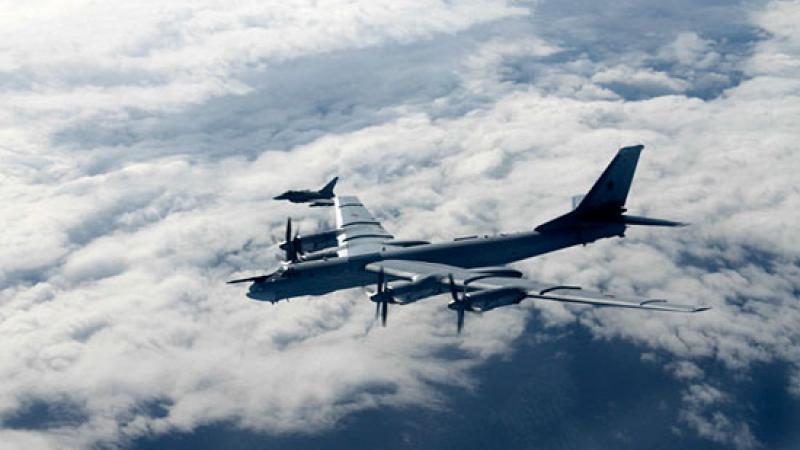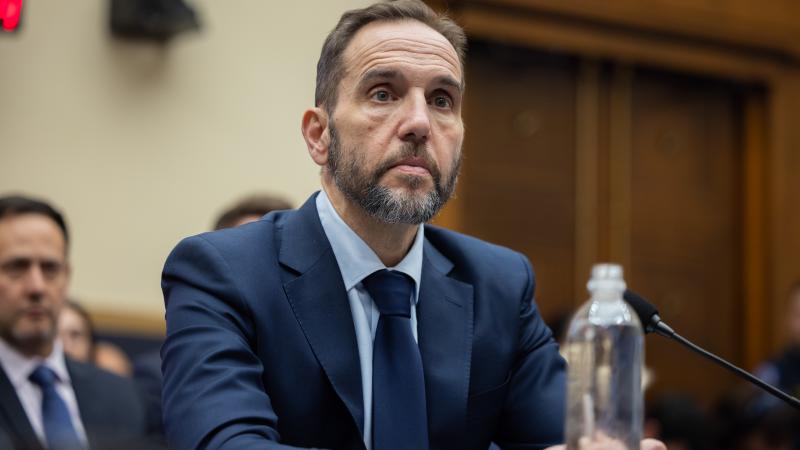Moscow fears it will suffer more losses inside Ukraine, experts say
Easily dismissed claims by the Kremlin are a sign of desperation in Moscow, experts said.
Recent developments in Donbas indicate that Russia continues to falter in the war against Ukraine, and that Moscow is growing more desperate to create the semblance of victory, military analysts said.
"They have significant concerns that they're going to have even a worse loss than they already have had," according to retired Army Maj. John Spencer, an expert on urban warfare.
The most overt sign of this is that Russian President Vladimir Putin last week sent his highest ranking military officer, Gen. Valery Gerasimov, to the front lines in the town of Izium, where he barely escaped a deadly attack from Ukrainian forces.
"That's the chief military adviser to the president," Spencer told Just the News. "If you take the risk of him dying, and send him into a war zone, that's just nuts."
Much can be deduced from action inside the town where Gerasimov evaded attack, others said.
"Russian forces continued to regroup and conduct unspecified offensive operations in the Izyum area, but did not make any confirmed advances on May 2," according to the Institute for the Study of War (ISW). A Ukrainian artillery strike on the town on Saturday "may be continuing to disrupt Russian operations" in the area, noted the group, which publishes detailed daily accounts of the war in Ukraine.
One sign of desperation in Moscow is that the Kremlin is making claims that can be easily dismissed, a military intelligence analyst said. A particularly egregious claim is about the status of Mariupol, said the analyst, who made comments on background because he is not authorized to speak to the media.
"They say they have captured Mariupol, but if that's true, why are they continuing to attack?" the analyst said.
The ISW concurs. Russia's continued bombardment of Mariupol "belies Moscow's claims that its forces have secured the city," the group wrote in its Monday assessment.
The Pentagon this week said that Russia has made "minimal progress at best," with "minor gains" east of the northern cities of Izyum and Popasna, and has lost those gains when Ukraine launched counterattacks.
"What we saw there in Popasna is not unlike what we've seen in other hamlets in the Donbas," a senior defense official told reporters at the Pentagon. "They'll move in and then declare victory, and then withdraw their troops, only to let the Ukrainians take it back. So, very, very cautious, very tepid, very uneven work by them on the ground, and in some cases, quite frankly, the best word to describe it would be 'anemic,'" said the official, who spoke to reporters on the condition of remaining anonymous.
"They're still suffering from poor command-and-control, low morale in many units, less-than-ideal logistics," the official said. "They still have not solved all their logistics problems, and quite frankly, there's a casualty aversion, a risk and casualty aversion that we continue to see by the Russians now, not just in the air, but on the ground."
The outlook for Russia is not good, Spencer said.
"Every day the supplies from the west are getting into the front lines," he said. "That military can't hold for much longer in Ukraine. We've seen the best of what they got."
Still, Moscow will likely continue to press the war that Putin launched on Feb. 24, according to a former CIA Russia expert.
"I don't think the Russians quite yet are ready to make peace," said George Beebe, the former director of Russia analysis at the Central Intelligence Agency. "Putin needs some sort of much more visible degree of success on the battlefield in Ukraine before I think he's willing to consider some sort of end to hostilities."
That would translate into victory in eastern Ukraine, he said.
"I think at a minimum, the Russian military is going to have to occupy most or all of Donbas before the Russians will be in serious negotiating mode," Beebe said. He made his remarks during a Monday appearance on the John Solomon Reports podcast.
In response to questions about whether the war in Ukraine could turn nuclear, the White House on Monday said it agrees with the Kremlin that a nuclear war cannot be won by anyone.
"I would say that the Russians themselves have, over time, including as recently as last year, made clear that no nuclear war — a nuclear war could not be won," press secretary Jen Psaki told reporters. "We agree with that."
The U.S. will not send U.S. troops "on the ground to fight this war," Psaki said.
















